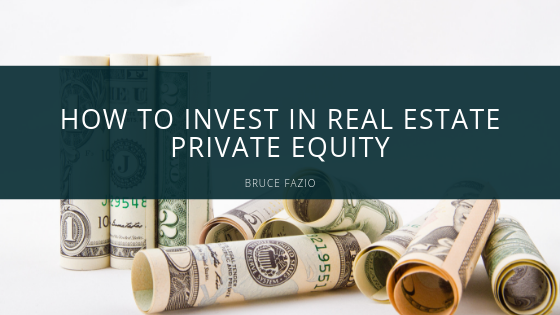If you are looking to become involved in real estate investing, it’s likely that you have come across private equity (PE) as a potential option. Private equity offers individuals, as well as institutions, shares or an interest in valuable properties. For seasoned real estate investors, private equity’s diversified approach offers a chance to further maximize their portfolio.
What’s more, few types of real estate investments allow investors to put their money into properties or opportunities that aren’t close to them. Private equity investments can be made on properties that are far away, making the location and distance of a property a non-issue.
However, despite its numerous advantages, there seems to be some confusion surrounding how someone might get involved with this type of investment. Let’s clear that up.
While traditional private equity funds require investors to contribute a minimum of $250,000 into a fund, others are only interested in investors that can provide more than $10-20 million. On top of the pricier buy in compared to other ways of investing, most PE firms only extend opportunities to those who they consider to be accredited investors. Those who have at least $1 million invested in personal or joint assets or a yearly income totaling or exceeding $200,000 are considered accredited investors. Couples with a combined income exceeding $300,000 also apply.
Once you identify if you meet the above requirements, which are a general baseline, you can begin researching private equity firms that specialize in real estate. PE firms were not created equally. You should look for one with a proven track record of successful and profitable real estate history. After all, outside investors don’t have a say in the properties the firm selects. The wrong property could turn out to be a poor investment for you, whereas a well-respected and known PE firm that regularly chooses great properties can pay off big time.
From there, you have four strategies to invest in private equity real estate:
- Opportunistic
- Managers at the fund buy properties in underperforming markets, undeveloped land, or in areas that don’t get a ton of traffic. This investment strategy typically yields the highest return. However, it also includes the most risk.
- Core
- Best for those just getting started, the core strategy is the most conservative way to invest in PE. They are associated with low-risk purchases in developed and popular areas, as well as properties that are already developed and require little to no renovations or upkeep. For this reason, they most often produce the lowest returns, but can provide a pleasant and predictable cash flow.
- Core-Plus
- Similar to core strategy, but core-plus is a tad bit riskier and can yield a higher return. With core-plus, the properties that are purchased require more renovations, upkeep, and enhancements and can therefore become more of a risk.
- Value Added
- This strategy is pretty middle of the road. It offers a decent return— not too high and not too low—and moderate risk. With a value added strategy, managers purchase a property, renovate slightly, and then resell when the market is doing well.
All in all, the most important thing for someone to consider before getting involved in real estate private equity is whether or not they are qualified for such an investment. While other forms of investments are more suited to those with smaller sums of money to invest, private equity demands a high-net worth. If you fit the qualifications, private equity can definitely be a lucrative investment and well worth your consideration.


Recent Comments